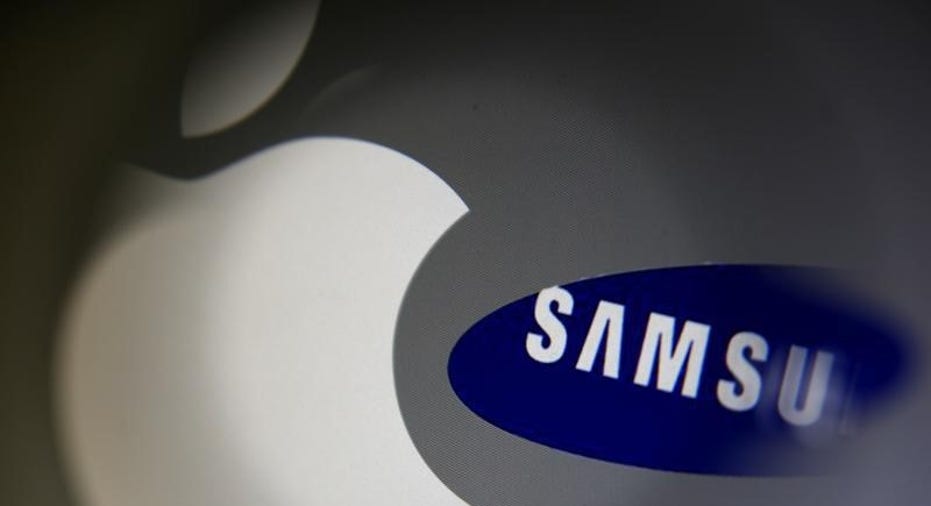Apple-Samsung iPhone patent feud leaves U.S. top court struggling

WASHINGTON – The fierce, big-money patent fight between Apple and Samsung left the U.S. Supreme Court groping for a solution on Tuesday, as the justices puzzled over how to discern the value of individual design elements in a complex product like an iPhone.
The eight justices heard arguments in Samsung's bid to pare back $399 million of $548 million it paid Apple in December following a 2012 jury verdict finding that it infringed Apple's iPhone patents and copied its distinctive appearance in making the Galaxy and other competing devices.
The $399 million penalty stemmed specifically from Samsung's violation of three Apple patents on the design of the iPhone's rounded-corner front face, bezel and colorful grid of icons that represent programs and applications.
While the justices signaled a willingness to reduce the potentially huge penalties imposed for ripping off someone else's patented design, some expressed skepticism over how, in practice, juries could figure out the importance of a specific design trait in a product in order to calculate damages.
"If I were a juror, I wouldn't know what to do," Justice Anthony Kennedy said.
Several justices struggled with how they would devise a test for lower courts and juries to use to determine design patent damages.
BEETLE COMPARISON
Using as an example the Volkswagen Beetle's unique automobile body contour, Justice Elena Kagan suggested it might be difficult for a jury to decide how much damages to award based on a theoretical patent infringement of its shape, when that trait might be the main factor driving consumers to buy it.
Smartphones like Cupertino, California-based Apple's iPhone and South Korea-based Samsung Electronics Co Ltd's Galaxy have become an indispensable part of everyday life for many people worldwide, as well as huge business for their makers. Samsung is the world's No. 1 smartphone manufacturer. Apple is its fiercest rival.
The case was heard on same day Samsung scrapped its flagship Galaxy Note 7 smartphone following reports of the phones catching fire. It was supposed to have competed with Apple's latest iPhone for smartphone market supremacy.
Samsung has contended it should not have had to turn over all its profits on phones that infringed the iPhone design patents, which the company said contributed only marginally to a complex product with thousands of patented features.
Chief Justice John Roberts said that since the patented designs involve the outer case of a smartphone and not "all the chips and wires" inside, the profits awarded should not be based on the entire price of the phone.
After the argument, Samsung's attorney, Kathleen Sullivan, said, "We are hopeful that the Supreme Court will give a sensible and fair reading to the design patent statute. That would be a win for businesses and consumers alike."
Apple's chief litigation officer, Noreen Krall, said courts at every level have found that Samsung intentionally and blatantly copied the iPhone, adding: "We think that's wrong and that it poses chilling risks to the future of design innovation." A ruling is due by the end of June. Apple sued Samsung in 2011, asserting that its rival stole its technology and the iPhone's trademarked appearance. After a trial in 2012, Apple was awarded nearly $930 million in damages.
The U.S. Court of Appeals for the Federal Circuit in Washington last year upheld the patent infringement verdict, but said the iPhone's appearance could not be protected through trademarks. That cut Samsung's damages back to $548.2 million. Design patent fights very rarely reach the Supreme Court, which had not heard such a case in more than 120 years.
The case is Samsung Electronics Co Ltd v. Apple Inc, in the Supreme Court of the United States, No. 15-777.
(Reporting by Andrew Chung; Editing by Will Dunham)



















